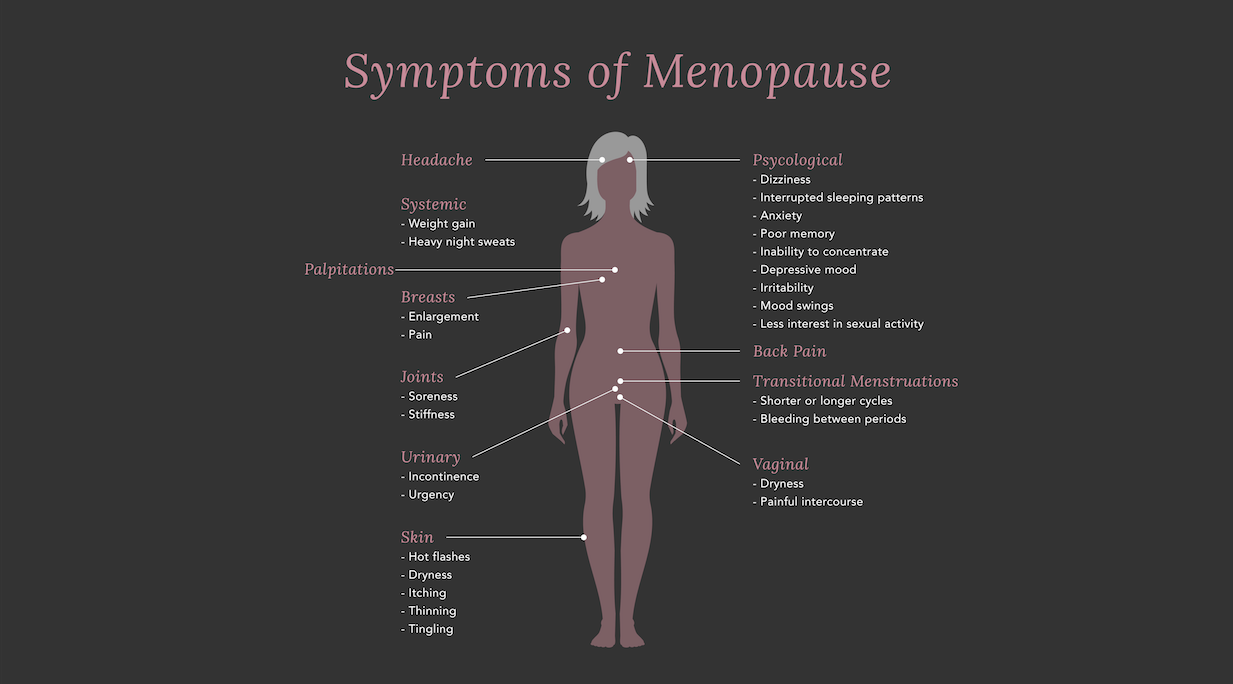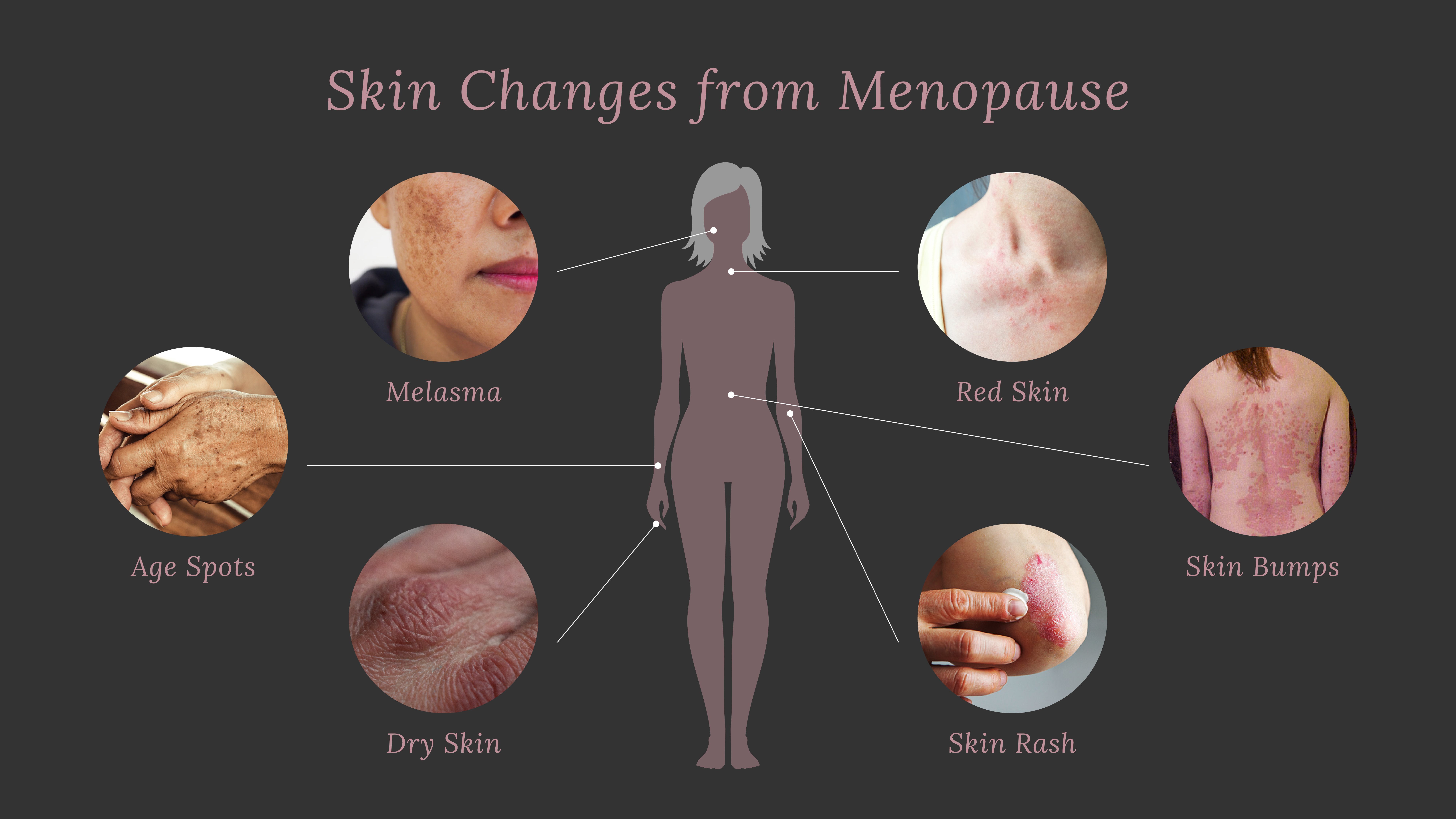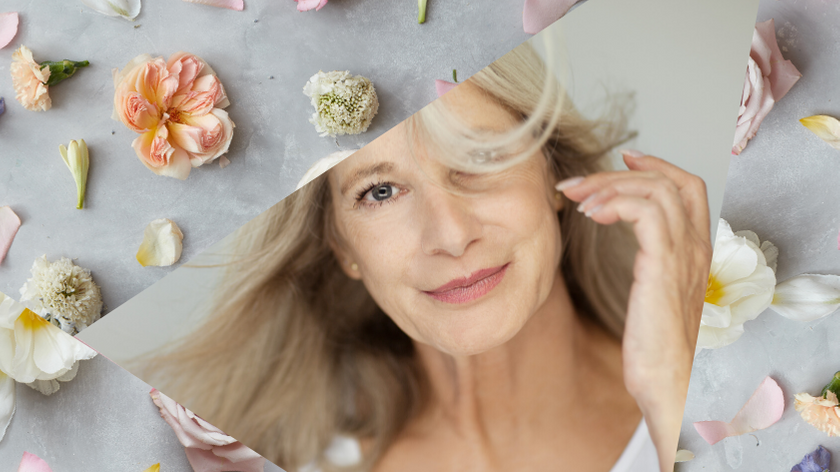Menopause
Menopause is a natural path of ageing, officially begins one year after your last period, when a woman’s ovaries stop producing eggs. This typically happens around the age of 45 to 55 and it usually lasts about 7 years but can last up to 14 years.
Natural menopause happens spontaneously and permanently ends menstruation. At this time, a woman’s body goes through a great deal of hormonal change. Production of a hormone called oestrogen decline, directly impacting skin ageing. At this age, cell turnover slows down. Other common symptoms of menopause may include hot flashes, trouble sleeping, vaginal dryness and sudden weight gain.

Learn More: How to care for menopause itchy skin and other skin concerns?
Skin changes
Dry Skin, thinner skin and itchy sensation
As we age, collagen reproduction slows, you lose some fat under your skin and the skin’s elasticity drops causing skin sagging, this is particularly visible around the neck, jawline and cheeks. During menopause, the level of a hormone called estrogen drops. This hormone is accountable for production of natural oils and collagen. As a result of the fall in estrogen, you’ll observe more wrinkles and fine lines formation or deepening of them. The skin becomes thinner, dry and less elastic. Sometimes causing the itchy sensation, prickling, numbness of the skin or may feel like insects crawling under the skin.
Age Spots
Large area of darkened skin, it is flat and can be of any colors between brown, gray or black, mostly seen at sun-exposed areas of the body. It is caused by excess production of a skin pigment called melanin. Age spots are not dangerous and don’t cause any health problems. Treatments are not necessary.
Related: Fighting Dark Spots, Blemishes, and Splotchy Skin
Melasma - pigmentation on the face, lips, usually caused by a combination of hormonal change and sun damage. Cells become hyperactive and produce too much pigment in certain areas of the skin. The mechanism is similar to what causes brown age spots and freckles, but melasma patches tend to be larger.
Skin Rash / redness / small bumps - Menopause doesn’t cause skin rash, but as the skin becomes more thin and dry, it is sensitive to irritation. When contacted with irritating substances, red bumps or hives may form on skin. Hot flashes, red flush and spread across skin on face, neck or chest.

Increase in facial hair
Actually, the hair has always been there, they are just more noticeable now. During menopause, estrogen drops but the body continues to circulate the same amounts of testosterone. The imbalance of hormones causes the appearance of some male characteristics such as coarser, darker facial hair. It is not medically concerning but may make you feel self-conscious.
Decrease in hair on the scalp
Estrogen and progesterone are hormones that help hair grow faster and stay on the head for longer periods of time. When the levels of estrogen and progesterone drop during menopause, hair grows slower and becomes much thinner. A decrease in these hormones also triggers an increase in the production of androgen, or a group of male hormones. Androgen shrink hair follicles, resulting in hair loss on the head.
To relieve the symptoms of menopause, the tips and recommendations in the next article will help you grace through this temporary phase in life, more comfortably and more beautifully.
Related: " How to Care for Menopause?"
.png?width=180&height=80&name=imgpsh_fullsize_anim%20(1).png)

